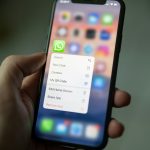Nigerian traditional banks are venturing into the digital lending market, setting the stage for a showdown with their digital counterparts. By creating standalone digital lending apps, these banks aim to attract customers from smaller banks with high interest rates and potentially lure customers away from other digital lenders, leveraging their competitive advantage of offering the lowest lending rates in the market.
On January 17, TechCabal reported that Access Holding Plc, the parent company of Access Bank, received provisional approval from the Central Bank to launch Oxygen X, a standalone lending product. While Access is the first holding company to make a foray into standalone digital lending, other banks are reportedly in discussions to establish their own standalone digital lending services, according to a reputable industry source.
Expressing skepticism about the banks’ ability to execute their digital lending strategies effectively, an anonymous source remarked, “Banks may launch their apps, but they don’t have the mastery of execution that fintechs have. Banks will possibly drop the ball. I am not betting on any banks to win in the market.”
This sentiment echoes the skepticism voiced by fintech insiders when traditional banks initially entered the fintech space. However, Habari Pay, the fintech arm of Guaranty Trust Holding Company (GTCO), reported profits of ₦1.3 billion in the first half of 2023, suggesting that traditional banks may have the potential to succeed in the digital lending arena. Furthermore, QuickCredit, arguably one of the most innovative lending products in recent years, was launched by a traditional bank.
The question arises: will traditional banks alter their approach to retail lending?
While commercial banks are mandated to lend, they have historically been conservative in extending loans, particularly to individuals and small businesses. Instead of targeting the mass market with a high risk of defaults, banks typically focus on lending to high-quality borrowers, such as salary earners with reputable employers.
A former bank executive contends that the entry of traditional banks into the digital lending market will only be a game-changer if they abandon their traditional lending practices and embrace a data-driven approach. “For me, the big question is, what will be different? What is the play? Is it lower rates and faster returns? One advantage banks have is that they can unlock customers’ data to make lending decisions,” he said.
Nigeria’s digital lending market is currently dominated by startups like Carbon, FairMoney, and OPay, catering to an expanding base of digital-first customers. The country’s digital lending regulator, the Federal Competition and Consumer Protection Commission (FCCPC), has licensed approximately 211 digital lenders. These startups are known for their simplified lending process, enabling individuals to secure loans within minutes with less stringent Know Your Customer (KYC) requirements.
However, the convenience offered by these digital lenders comes at a cost. Many of them charge interest rates as high as 30% per annum, while banks like GTBank, through its digital lending platform QuickCredit, offer rates around 21%. The variance in interest rates can be attributed to differences in financing costs. Traditional banks have substantial customer deposits to lend from, whereas fintech startups often rely on debt or venture funding. Additionally, digital lenders have fewer data points to inform their lending decisions, leading to slightly higher risk, which is reflected in their interest rates.
The cost of loan recovery presents another challenge for lenders. According to an industry insider, traditional banks may be at a disadvantage in this aspect, as they are unable to employ some of the aggressive loan recovery methods utilized by certain digital lenders.
It is evident that traditional banks are leveraging their competitive advantage of offering lower interest rates to compete with fintechs. Whether they can successfully adapt their lending strategies remains to be seen.



